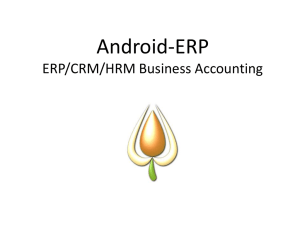Underwriting Accounts Receivable
advertisement
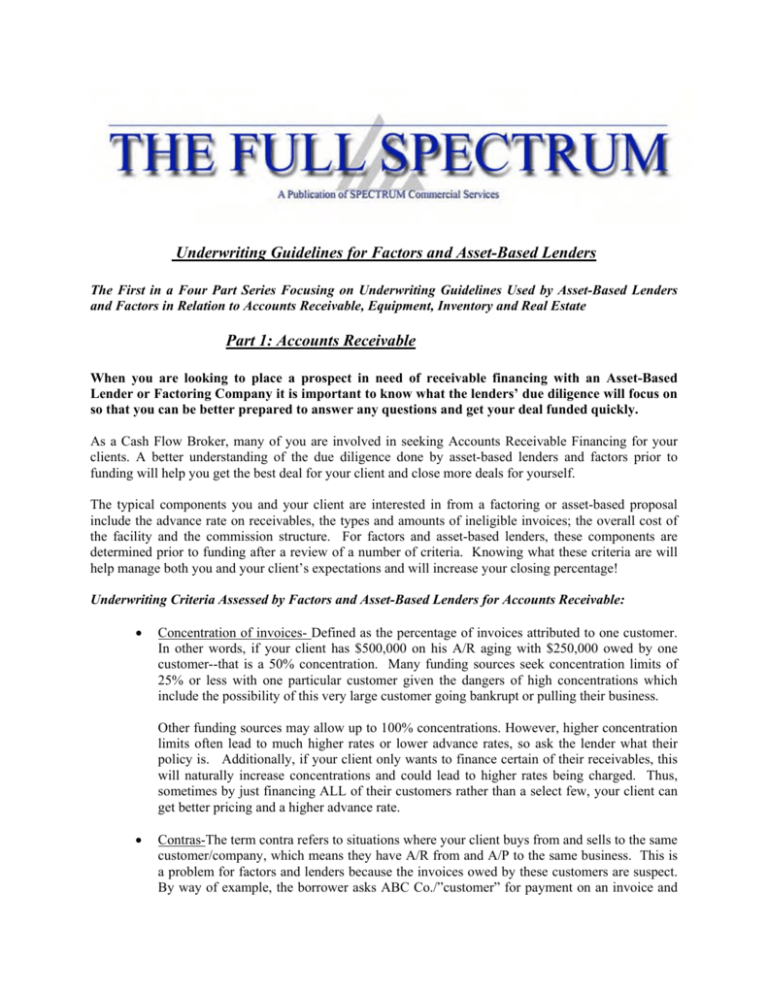
Underwriting Guidelines for Factors and Asset-Based Lenders The First in a Four Part Series Focusing on Underwriting Guidelines Used by Asset-Based Lenders and Factors in Relation to Accounts Receivable, Equipment, Inventory and Real Estate Part 1: Accounts Receivable When you are looking to place a prospect in need of receivable financing with an Asset-Based Lender or Factoring Company it is important to know what the lenders’ due diligence will focus on so that you can be better prepared to answer any questions and get your deal funded quickly. As a Cash Flow Broker, many of you are involved in seeking Accounts Receivable Financing for your clients. A better understanding of the due diligence done by asset-based lenders and factors prior to funding will help you get the best deal for your client and close more deals for yourself. The typical components you and your client are interested in from a factoring or asset-based proposal include the advance rate on receivables, the types and amounts of ineligible invoices; the overall cost of the facility and the commission structure. For factors and asset-based lenders, these components are determined prior to funding after a review of a number of criteria. Knowing what these criteria are will help manage both you and your client’s expectations and will increase your closing percentage! Underwriting Criteria Assessed by Factors and Asset-Based Lenders for Accounts Receivable: Concentration of invoices- Defined as the percentage of invoices attributed to one customer. In other words, if your client has $500,000 on his A/R aging with $250,000 owed by one customer--that is a 50% concentration. Many funding sources seek concentration limits of 25% or less with one particular customer given the dangers of high concentrations which include the possibility of this very large customer going bankrupt or pulling their business. Other funding sources may allow up to 100% concentrations. However, higher concentration limits often lead to much higher rates or lower advance rates, so ask the lender what their policy is. Additionally, if your client only wants to finance certain of their receivables, this will naturally increase concentrations and could lead to higher rates being charged. Thus, sometimes by just financing ALL of their customers rather than a select few, your client can get better pricing and a higher advance rate. Contras-The term contra refers to situations where your client buys from and sells to the same customer/company, which means they have A/R from and A/P to the same business. This is a problem for factors and lenders because the invoices owed by these customers are suspect. By way of example, the borrower asks ABC Co./”customer” for payment on an invoice and ABC Co./”vendor” then deducts from their payment what your client owes them. This means that invoices in contra situations may not be worth what they appear to be on their face. Thus, when you are reviewing a prospect you need to look at both their A/R and A/P agings to see if the same business name(s) appear on each—if they do, it’s a potential contra which makes the A/R invoices ineligible for most lenders. Thus, depending on the number and size of any contras, this issue could seriously impact your client’s availability. Payment Terms-Typically, today’s factoring companies use “recourse” factoring where the client must buy back the invoice from the factor with a replacement invoice if payment is not received timely (normally 90 days after invoice date). Thus, the payment terms offered by your client and their ability to collect their invoices in a timely manner can greatly affect both the volume of invoices purchased by the funding source and the cost per invoice (since the cost for the invoice financing is based on how long the invoice is outstanding). For example, if your client offers customers 90 day terms and the funding source is unwilling to adjust the period of time for which an invoice is acceptable (typically 90 days from invoice date) then it would not make sense for the funding source to purchase invoices from your customer as they will likely all be recoursed eventually at 90 days. Thus, you need to ask your client about their terms. Generally, the longer the payment terms the greater perceived risk of payment in the minds of the funding source and the less advantageous financing accommodation they will offer your client. Progress Bills and Pre-Bills- If your client is involved in construction, software development, web site development, janitorial services, large machinery manufacturing or is an internet service provider there is a strong possibility that they issue progress bills or pre bills. Progress bills are invoices for a certain portion of a job completion and usually involve a “milestone” of some type or are based on a “percentage of completion” approach. For example, a software development firm might have a $1,000,000 project to build a custom software application. Each month they might bill the “approximate” amount of the job completed that month. While those invoices may be allowed by the contract’s terms, lenders look at what happens if the borrower fails. In the event of a failure, it’s very unlikely that the customer will pay for partially completed work as they will have to find a replacement firm to complete the work. Thus, if your client does a lot of these types of projects you need to find a specialized lending source that finances these unique types of invoices as many lenders will not do so. Pre-Bills are issued in advance of work being completed. Often many service companies (such as janitorial or cleaning companies, computer service companies etc.) will issue a bill at the beginning of the month for the work that will be completed for the up coming month. Again, due to the fact that these invoices will not get paid if the borrower fails, most accounts receivable funding source will not purchase these types of receivables. However, once the work has been completed and the month is over, the funding source will often then purchase this invoice (which is generally now 30 days old). Therefore, as part of your due diligence in trying to place a client, it is important for you to ask your client if they do these types of progress billings or pre-bills because it will affect the type of lender you need to find. Conclusion- Funding sources look at a variety of criteria when deciding what invoices they will fund and at what advance rate and cost. Obviously, these criteria also affect your commission from the funding source. So ask the questions noted above and watch your closing rate soar. SPECTRUM COMMERCIAL SERVICES COMPANY SPECTRUM’s unique approach lets you work with us to determine your commission rates. Beyond commissions, SPECTRUM also offers you a bonus each time you fund a deal as well as year end bonuses based on the volume of invoices purchased. As your client grows with SPECTRUM, your commission also grows! For more specifics please call or e-mail Jeff Colquette at 952-876-8229 or jeff.colquette@spectrumcommercial.com. SPECTRUM - Your Bridge For Those Hard to Finance Credits SPECTRUM continues to assist banks and brokers by financing $25,000 - $4,000,000 credits that have suffered a setback, credits in transition and new potential credits that are currently outside the bank's parameters. SPECTRUM can provide the financing bridge for these struggling credits until they return to stable and profitable operations. SPECTRUM Programs: As the source for working capital for non-bankable credits, SPECTRUM's product lines remain a strong fit to address the many issues encountered with struggling credits. Accounts Receivable Financing --for those smaller and/or severely financially stressed companies, this program may be the best fit. Asset-Based Lines of Credit --for the larger non-bankable credits with relatively stronger performance, better internal controls and more experienced management. Within this program we focus on financing receivables, inventory, equipment and R.E. Structured Asset-Based Line of Credit --SPECTRUM also offers a unique product for those credits needing to leverage various collateral classes but who lack the required financial performance and internal controls necessary to qualify for our typical Asset-Based Line of Credit. This program is basically a hybrid program combining an Accounts Receivable Financing accommodation for the A/R with an Asset-Based Line on inventory, equipment and/or real estate. If you wish to receive these newsletters via e-mail, please send a request to Jeff Colquette via 0e-mail with the phrase "Subscribe to Newsletter" in the subject line then list your contact information so your e-mail address can be matched to the contact information we have on file. If you want to discontinue receiving this newsletter please send an e-mail with the phrase “Un-Subscribe to Newsletter” in the subject line then list your contact information.
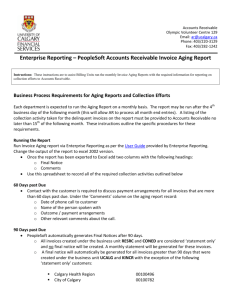
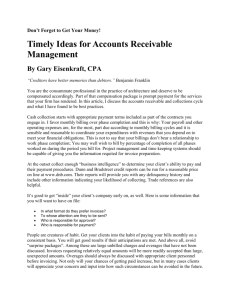
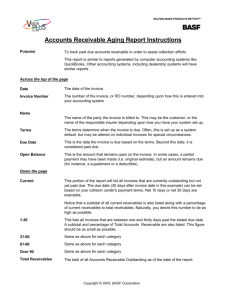

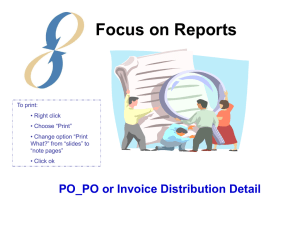
![Job Description [DOCX - 56 KB]](http://s3.studylib.net/store/data/006627716_1-621224f86779d6d38405616da837d361-300x300.png)
